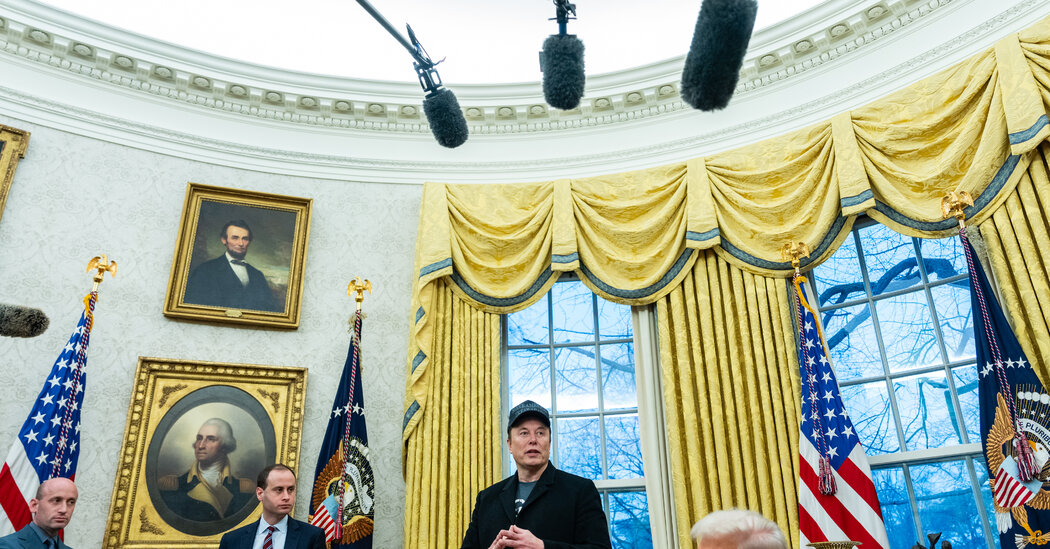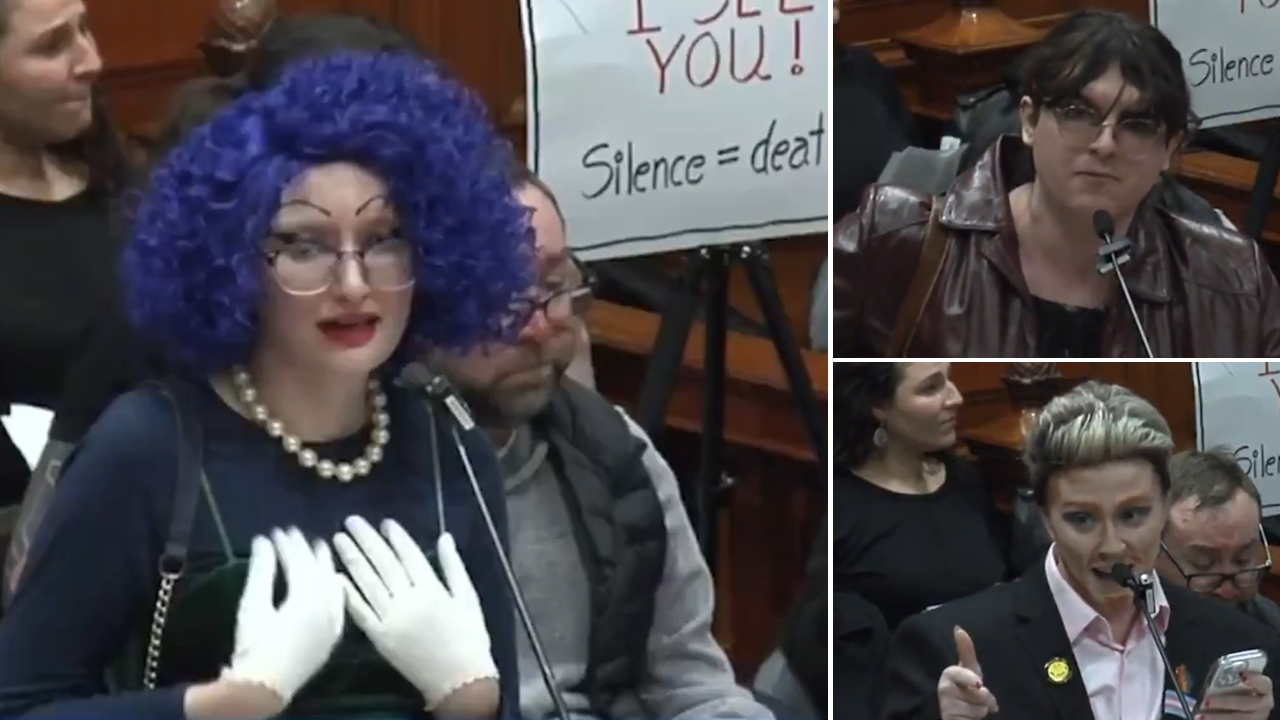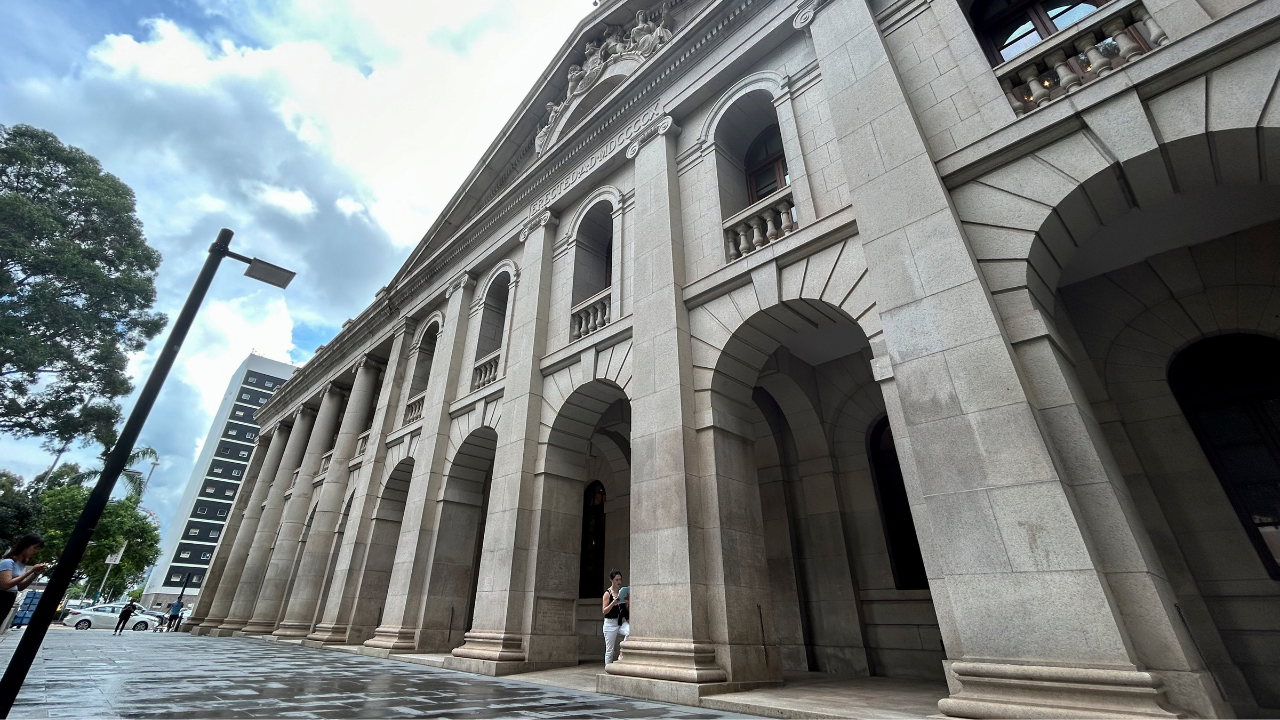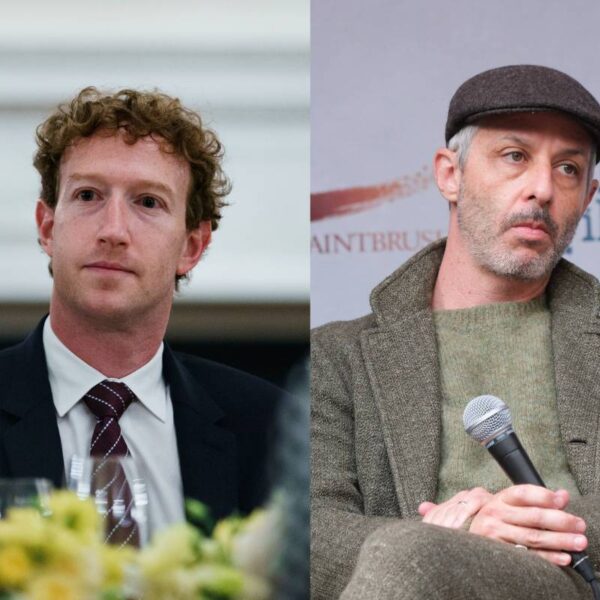For years, journalists have written about the social media posts of government employees to help reveal the positions, motivations and actions of public officials.
But when a journalist recently trained that same lens on Elon Musk’s new government efficiency program, the billionaire suggested that the reporting might be illegal, joining other powerful figures connected to the Trump administration who have made similar claims in recent weeks.
The offense, they argue, is doxxing: publishing private information about someone with malicious intent. The term refers to a revenge tactic, originally used by hackers, to bully, harass or intimidate people online, and can incite third parties to commit acts of violence.
Mr. Musk and others have expanded the definition this month, applying it to journalists and others seeking to hold the government accountable by reporting on public information. One Justice Department official appointed by President Trump stated early last week that he had found evidence of law breaking from people who were “targeting” employees of Mr. Musk’s government efficiency program.
Although the official did not name names, civil liberty and free speech groups said his comments appeared to refer to several journalists who had recently uncovered new details about Mr. Musk’s efforts, including identifying some of the people working for him. Those advocates say that the First Amendment explicitly protects the kind of work reporters do and that government employees are by definition not protected from critical inquiry.
Instead, they say, Mr. Musk and others are trying to intimidate and chill the media at a crucial moment.
“The term ‘doxxing’ has become unmoored from its origins to mean that someone posted something on the internet that I would rather not see,” said Will Creeley, legal director for the Foundation for Individual Rights and Expression, a free speech group best known as FIRE. “But if living in the U.S. in 2025 means you can expect a criminal investigation for criticizing the government, we’re all in a whole lot of trouble.”
The political right has increasingly ramped up an assault on mainstream journalists in recent weeks. Since his inauguration, Mr. Trump has amplified false claims that the government secretly funded news outlets including Politico, calling it “the biggest scandal of them all,” while taking time to name specific journalists and call for them to be fired.
The Federal Communications Commission also opened an investigation into PBS and NPR and is investigating CBS News’s handling of a “60 Minutes” interview with former Vice President Kamala Harris last fall, which is the subject of a lawsuit filed by Mr. Trump. The Trump administration also recently gave space in the Pentagon dedicated to several large media organizations, including The New York Times and The Washington Post, to right-leaning outlets like Breitbart News and One America News Network.
A White House spokeswoman did not respond to a request for comment. Mr. Musk did not respond to an email seeking comment.
Mr. Creeley’s group and almost three dozen other organizations are now asking Ed Martin, the interim U.S. attorney for the District of Columbia, who issued the public threats to prosecute those who interfere with Mr. Musk’s work, to explain what laws he believes were violated and whom he is investigating. In a letter last week, the organizations said any attempts to charge reporters or media outlets in that context would be unethical and illegal and violate the Constitution.
There is no federal anti-doxxing law, but over a dozen states have enacted statutes to protect people from being doxxed. Some of those laws are tailored to apply only to certain public officials, such as police officers, public health officials or judges.
Mr. Martin’s statements followed new reporting on the so-called Department of Government Efficiency, or DOGE, the group headed by Mr. Musk that is charged with reforming the federal government.
The first of those reports, published on Feb. 2 by Wired, named six of the department’s recent hires, whose identities had previously not been public.
The next day, Mr. Musk took to X, his social media platform, to reply to an anonymous account that shared the names of those employees.
“You have committed a crime,” Mr. Musk wrote. The account was subsequently suspended, causing the post to disappear from the platform.
Charlie Kirk, a co-founder of the right-wing activist group Turning Point, soon after directly accused Wired of “doxxing DOGE employees,” in a post to his 4.6 million followers on X. Hours after that, Mr. Martin posted a letter on Justice Department letterhead, tagging Mr. Musk and stating: “We will not tolerate threats against DOGE workers or lawbreaking by the disgruntled.”
Days later, Katherine Long, a reporter at The Wall Street Journal, wrote an article stating that Marko Elez, 25, a DOGE employee who had been granted access to the Treasury Department’s payments system, had in the past posted racist comments on a social media account. In response to Ms. Long’s inquiries with the White House, Mr. Elez resigned.
That prompted a series of attacks by Mr. Musk on X, who claimed that the reporter was a “disgusting and cruel person” who “should be fired immediately,” adding that her actions were “certainly improper, possibly criminal.”
Several hours later, Mr. Martin posted a second letter to Mr. Musk on X, thanking him for “the referral of several individuals and networks who appear to be stealing government property and/or threatening government employees.”
Wired said the Justice Department had not contacted it regarding the matter. Katie Drummond, the outlet’s global editorial director, said in a statement that “our coverage speaks for itself,” adding, “It is rigorously reported and fact-checked.”
The Wall Street Journal did not respond to a request for comment.
Ms. Long has since become the target of a massive swell of online abuse and criticism. A prominent hedge fund manager, Bill Ackman, called her an “evil, unethical liar” in a post that included her contact information. Last year, in an article for Business Insider, Ms. Long reported that Mr. Ackman’s wife, Neri Oxman, appeared to have plagiarized parts of her dissertation.
Over the weekend, a right-wing influencer from Britain wrote a critical article about Ms. Long that described her as “fanatical” and suggested that she might be an undercover federal agent because she had a State Department internship more than a decade ago and worked for the United States Agency for International Development in Tajikistan in 2016.
Vice President JD Vance also suggested in a post on X that Ms. Long was trying “to destroy people” with her work.
Danielle Citron, a professor of law at the University of Virginia who specializes in issues around online privacy, said it was ironic that Ms. Long had been subjected to online harassment by the same people who cried foul over her reporting.
“This is a case of ‘privacy for me, but not for thee,’” Ms. Citron said.
She and others also said that despite their recent outrage over what they termed doxxing, Mr. Musk and others aligned with the Trump administration had a long history of publicly outing people they disagree with.
In October, for example, a group funded by the Heritage Foundation, the Trump-aligned nonprofit behind Project 2025, the right-wing blueprint for a Republican administration, published the names of 10 little-known employees of the Department of Homeland Security, calling them “America’s most subversive immigration bureaucrats.” Last week, it published the names of more than 50 other low-profile federal employees as part of what it calls a “DEI Watchlist.”
And in late November, Mr. Musk amplified posts on X that named four federal employees working on climate change issues, leading at least one of them to delete her social media accounts.















